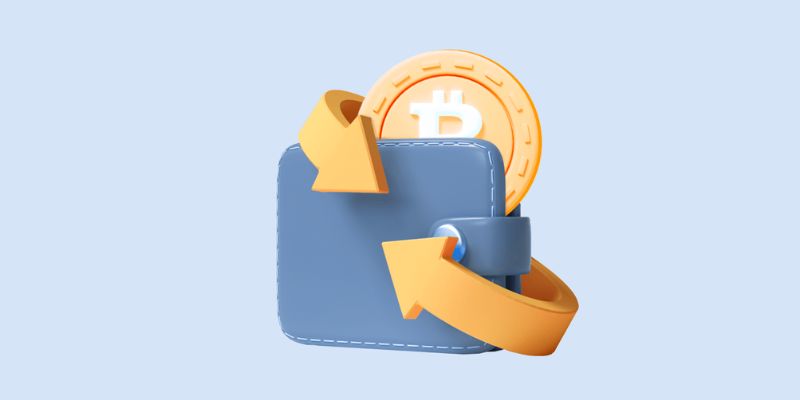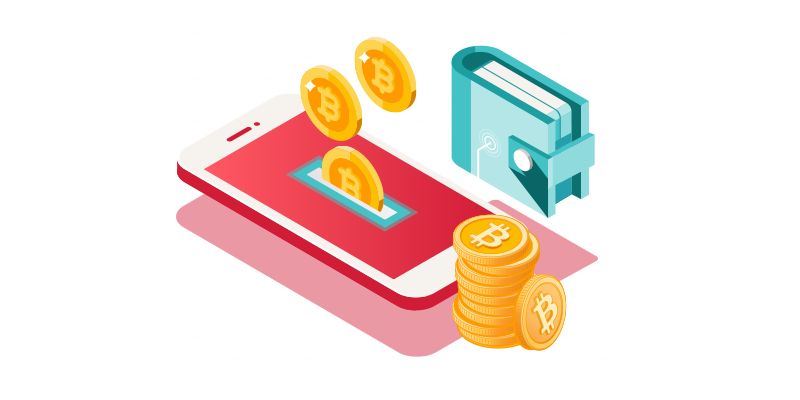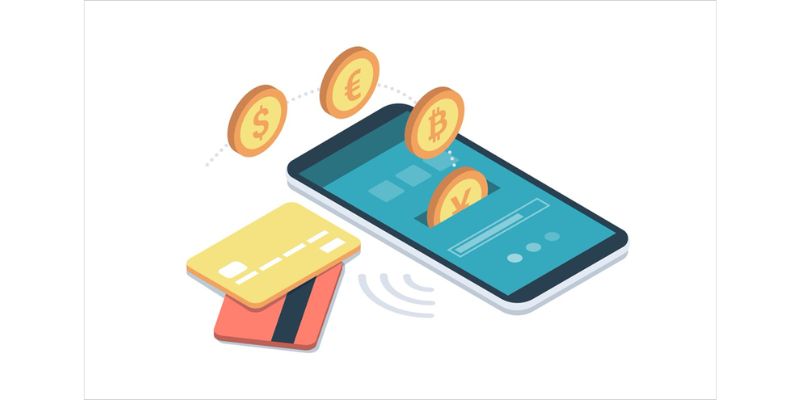Choosing a reputable crypto wallet for beginners isn’t something you rush. It’s the safe for your digital cash, keeping your bitcoins and altcoins away from hackers and lost coin horror stories. As a beginner, you need a wallet that’s easy as pie to use, but tighter than Fort Knox on security. I’ll walk you through understanding wallet types, from hardware that feels like a tough little USB to mobile apps that keep crypto clicks away. I’ve set up more wallets than I can count, so I’ll show you how to start up and stay safe, with tips on keys that open more than doors and backup plans to keep your coins sleeping soundly. Don’t just pick any wallet — let’s find one that fits your crypto life like a glove.
Understanding Different Types of Cryptocurrency Wallets
Exploring Hardware vs Software Wallets
Let’s start with knowing what’s out there. To keep your digital coins safe, you need a wallet. Yes, just like the one for your real cash, but for your digital money. Now, imagine two kinds of wallets – one, a sturdy safe (hardware wallet), the other, like a handy purse that’s on your computer or phone (software wallet).
Hardware wallets are like vaults. They store your coins offline so hackers can’t reach them. They are perfect for keeping large amounts of coins safe over time. They are small devices you can plug into your computer, but you need to buy them.
Software wallets, on the other hand, are apps or programs. They are free and easy to use. They live online or on your computer and are great for daily use. But since they are connected to the internet, they can be risky if not used right.
Mobile Wallets: Pros and Cons
Now, let’s chat about mobile wallets. These are like those handy apps on your phone. They let you send and receive coins with just a few taps. They are super helpful when you’re out buying stuff with coins instead of cash or cards. Many people like these because they are easy to use.
But, remember, because they are online, you need to be careful. Bad guys are always trying to steal your coin information. If your phone gets lost or stolen, your coins might go with it. That’s why it’s smart to always keep your app updated and have a strong password.
So, beginners, here’s the scoop: you’ve got choices. Hardware wallets are best for safety and storing lots of coins. Software wallets are good for everyday use, and mobile wallets are handy but come with risks. Choose what fits your coin life best and always think safe!
Setting Up Your First Cryptocurrency Wallet
Step-by-Step Guide to Hardware Wallet Setup
Let’s dive into your first wallet! A hardware wallet keeps your coins offline. This means they’re safe from online bad guys. Think of it as a safe for your digital cash. First, you pick a wallet. Look for one from a known maker. Check out reviews and ratings. They tell you what’s good and bad.
Next, you’ll set it up. Connect your wallet to a computer. It’s like adding a new mouse or keyboard. Just follow the guide that comes with it. It will walk you through each step. You’ll make a new pin and write down your recovery phrase. Keep this phrase locked away! It’s the master key to your coins.
You’ll then install software that works with your wallet. This helps you send and get coins. Make sure your computer is safe too. Use anti-virus software to keep it clean from bugs.
Once done, you can send some crypto to your wallet. Send a tiny bit first to make sure all’s well. Now you’re a true crypto owner!
Backup and Recovery: Safeguarding Your Investment
What if you lose your wallet? Or drop it in water? This is where your backup kicks in. The recovery phrase you wrote down is a lifeline for your coins. That’s why it’s so key. It lets you bring back your wallet on a new device.
Here’s how to keep your backup safe. Treat it like a treasure map. Only you should know where it is. Maybe get a safe or lockbox. Don’t keep it on your computer or phone. If those get hacked, your phrase could be gone too.
Use a metal backup tool if you can. This is a solid plate where you punch in your phrase. It won’t burn up or get harmed by water.
Test out your recovery steps. Make sure you know how to use that phrase. But do this without real coins in your wallet. Practice makes perfect, right?
So, always remember—keep your backup safe and practice its use. This way, you’ll never lose your digital treasure. Remember, each coin is worth real money. Keep it locked down, and you’ll sleep easy at night.
Having your first crypto wallet is a big step. Take your time. Learn each part. Ask for help if you need it. There are many friends in the crypto world ready to lend a hand. And with these tips, you’ll make a great start. Happy crypto saving!
Security: The Foundation of Your Crypto Wallet
The Importance of Private Keys and Seed Phrases
Let’s talk keys and seeds – these keep your coins safe. Your private key is like a super-secret password. And it’s all yours. Don’t share it, or you might lose your coins. A seed phrase? That’s a recovery tool. It’s a set of words that can bring back your wallet if tech troubles strike.
Keep your private key a secret. If someone gets your key, they can take your coins. And with a seed phrase, if you lose it, you can’t get to your money. It’s that simple. Write it down and put it somewhere safe – somewhere you won’t forget!
Multi-Factor Authentication and Encryption Features
For extra safety, use multi-factor authentication (MFA). This means you need more than one proof to get into your wallet. It’s like a security team for your coins. And it keeps sneaky folks out.
Encryption makes your data hard to read for bad guys. It’s a wall of codes they can’t crack. It guards your wallet like a tough guard dog.
Always pick a wallet with MFA and strong encryption. This combo brings the safety you need in the wild world of crypto. It’s like having a secret vault that only you can open. And that’s the kind of security we’re aiming for, right?
Remember, taking the time to choose a wallet with strong security gets you peace of mind. You’ll sleep well knowing your digital treasures are locked tight. Be smart and stay safe in your crypto journey!
Choosing a Wallet That Fits Your Needs
Evaluating Wallet Compatibility with Multiple Cryptocurrencies
What should you check first when picking out a wallet? See if it holds different types of digital money.
Not all wallets can hold every coin. You want one that fits what you will buy. Think about a multi-currency wallet. It can hold many kinds of digital money in one place. This means Bitcoin, Ethereum, and others are all there together. You won’t have to use different wallets for each one. This saves you time and keeps things simple.
Look for wallets that keep adding new coins. This way, your wallet grows with the market. It keeps you ready for new opportunities. Make sure your wallet works with the coins you might want in the future.
Assessing the Ease of Use in Crypto Wallets
Why should a wallet be easy to use? A simple wallet makes buying, selling, and holding digital money easier.
For beginners, a wallet must be easy to understand. If it’s hard to use, you could make mistakes. Mistakes with digital money can be costly. You want to see big buttons, clear directions, and easy access to your coins.
A good beginner wallet explains things in plain words. It shows you what each button does. It helps you learn while you use it. A wallet with good help and support is also key. You want someone to answer your questions fast.
When you set up your wallet, it should go step by step. It should make backup and recovery clear. If you lose your wallet, backup helps you get your money back. The setup should also teach you about security.
Take your time comparing wallets. Check reviews, but remember to use the best source of truth. Your eyes and your trial are the best test. Try out the wallet. See if it feels right for you. Only then should you start using it with real money.
In the end, the wallet you pick should keep your money safe. It should fit the coins you like and be a breeze to use. With the right wallet, you’ll be set to sail in the world of digital money.
In this post, we’ve gone through the nuts and bolts of crypto wallets, from hardware and software to mobile ones, and how they differ. Setting up a wallet takes some steps, but security is key, so take care with private keys and backup plans. It’s vital to pick a wallet that works with many coins and is easy to use. In the end, the right choice keeps your crypto safe and makes your life simpler. Stick with what fits your needs, and you’ll be set to join the crypto world. Stay smart, stay secure, and happy trading!
Q&A :
What factors should beginners consider when choosing a crypto wallet?
When beginners are on the lookout for a reputable crypto wallet, several critical factors come into play. Security is paramount, so they should look for wallets that offer strong encryption and protective measures such as two-factor authentication (2FA). It is also wise to consider the wallet’s reputation and reviews from other users. Ease of use is another significant factor; a user-friendly interface can make the experience less daunting for newcomers. Additionally, beginners should examine the types of cryptocurrencies supported by the wallet to ensure compatibility with their intended transactions.
How do I know if a crypto wallet is trustworthy?
Determining the trustworthiness of a crypto wallet requires a bit of research. Start by checking the wallet provider’s track record for security breaches or other issues. Look for transparency in their operations and also confirm if they have compliance with industry security standards. Peer reviews and community feedback can provide valuable insights into their reliability. It’s also crucial to verify if the wallet provider offers a customer support service that is responsive and helpful.
Are hardware or software wallets better for beginners?
The choice between hardware and software wallets depends on the newcomer’s needs and preferences. Hardware wallets, also known as cold wallets, provide a higher level of security since they store cryptocurrencies offline. They are suitable for those who value security above all and plan to hold their assets long-term. On the other hand, software wallets are often more accessible and easier to use, making them an attractive option for beginners who are more active in trading and prefer convenience. Nonetheless, it is substantial for beginners to comprehend the security practices for whichever wallet type they choose.
Can I have multiple crypto wallets as a beginner?
Yes, beginners can have multiple crypto wallets, and it’s often recommended to diversify wallet types for increased security and flexibility. For example, a user might have a hardware wallet for long-term storage of large cryptocurrency amounts and a software wallet for everyday transactions. Managing multiple wallets, however, requires an understanding of the different security measures for each and can add complexity. It’s critical for beginners to maintain a secure backup for each wallet’s keys or recovery phrases.
Where can I find reviews and ratings for different crypto wallets?
Reviews and ratings for crypto wallets can be found on numerous platforms such as cryptocurrency forums, blogs, dedicated review sites, and even social media. Websites like Trustpilot or Reddit’s various cryptocurrency communities can offer firsthand user experiences and opinions. Moreover, industry publications often provide professional analyses and comparisons of wallet features and security. Always look for recent reviews to get the most accurate and up-to-date information.



